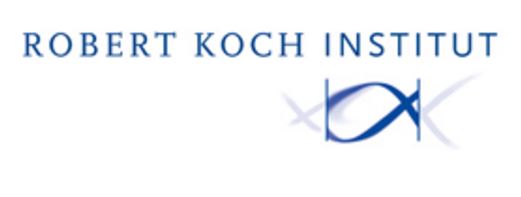Robert Koch Institute (RKI)

The Robert Koch Institute (RKI) is the central federal institution responsible for disease control and prevention and is therefore the central federal reference institution for both applied and response-orientated research as well as for the Public Health Sector.
The tasks of the Robert Koch Institute comprise:
- The identification of politically important health problems and associated scientific issues
- Applied and response-orientated research to resolve these issues
- The assessment of scientific results through analysis of current international developments in the respective scientific areas
- Informing and the advising political decision makers and the scientific sector
- Executive tasks defined by special laws, in particular with regard to protection from infection, legislation on stem cell research, and attacks using biological agents
- The topical realisation and coordination of federal health reporting.
Apart from the enforcement of special laws, the tasks at the RKI include the legal obligation to compile scientific findings as a basis for political decisions concerning health issues. The RKI therefore communicates and cooperates with partners in the scientific sector, the Public Health Service and the Health Care Sector. The institute has major responsibilities in the field of scientific investigation, epidemiologic and medical analysis and evaluation of dangerous diseases and those with a high prevalence or of increased public or health-related political significance.
With the passing of the Law for the Prevention of Infection (Infektionsschutzgesetz, IfSG), the RKI was given the responsibilities of a federal epidemiological centre for infectious diseases, combined with the construction of an expert-based registration system plus other novel and enhanced tools for data generation, prevention, surveillance and research.
The RKI is responsible for coordinating and the carrying out the Federal Health Reporting (Gesundheitsberichterstattung des Bundes, GBE), is involved in the conceptual design and realisation of epidemiological data collection (in particular survey and sentinel studies) and is concerned with the maintenance and update of the registers and other processed epidemiological data at the federal level. This task is fulfilled in collaboration with the Federal Statistical Office (Statistisches Bundesamt) and other higher federal authorities.
The RKI is further charged with tasks concerning the identification and prevention of attacks using biological agents. To achieve this, the RKI cooperates with civil defence sections at other federal ministries, with federal states, with local authorities, with European and international institutions and with institutions of civil protection and also informs the scientific sector and the media.
The RKI received further responsibility with the passing of the Stem Cell Law (Stammzellengesetz). This includes the execution of the authorisation procedures based on the Stem Cell Law as well as the maintenance of a register concerning the stem cell lines used and the research approved. The Central Ethics Committee for Stem Cell Research (Zentrale Ethik-Kommission für Stammzellenforschung, ZES) is based at the RKI.